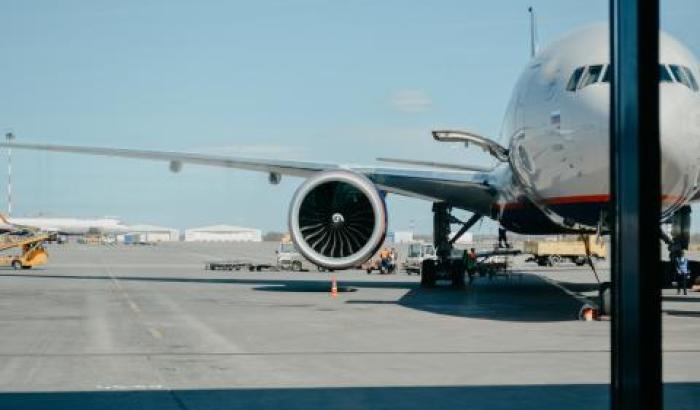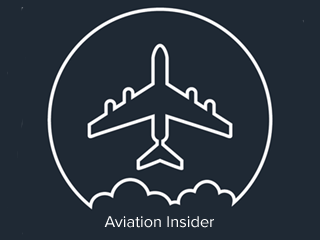
MPs Debate: “Aviation Industry on its knees”
On Wednesday 18th November 2020, a debate took place in Parliament, Westminster Hall, to discuss the Future Of Aviation. This debate was chaired by Sir Edward Leigh. The key points which were brought to the table and discussed by MPs, representing various constituencies across the UK, were; Passenger testing, Business and Financial support for the industry, and De-Carbonisation.
MP Chris Grayling stated that Aviation is a vital part of the economy, providing important connections from the UK to around the world. He described it as “a sector that is on its knees” and that seeing very few planes in UK airspace signifies “a disaster for this country, staff, airline personnel, airport services, suppliers, construction workers who have all lost their jobs”. The entire future of individual UK airlines is now under threat and the impact on the broader aerospace sector as a whole, in addition to more industries such as manufacturing and supply chains, and taking steps to mitigate the impact must be made a national priority. Only a couple of weeks ago, a Government Minister told the House of Lords that it is the view of the chief medical officer that travel is not a priority. Mr Grayling then said that the government must change tack and make sure that starting to reopen the sector must be made “an absolute priority”. The Government must actively seek to move WITH the industry which is doing all it can to encourage safe air travel. Especially with Brexit looming, The UK must have a strong aviation sector to strengthen the economy, otherwise it will “kill” Global Britain.
Key Statistics
- Aviation employs 100s of thousands of people in the UK.
- Worth £52 Billion a year. In 2019, the Aviation sector contributed £32Billion in exports to the economy.
- Largest aviation network in Europe, and 3rd largest in the world.
- Pre-pandemic Aviation accounted for about 4.5% of UK GDP.
- Air Passenger Duty. £13 added to each flight, is more than double that of any country in the developed world. 3.3 x gross value added would be created by reducing the duty as more people would travel.
- ROI injecting 80 million Euros into the aviation sector, in a country that has 4.5-5mill people. This could suck the life out of NI aviation. Measures are needed in place to preserve aviation in the UK.
- Business at Gatwick reduced by more than 61% since the start of pandemic. August peak time usually has more than 5 million passengers, however in 2020 it was less than 1 million. 40% of jobs lost, some at Virgin and Easyjet.
- Top 14 global aerospace companies have a significant presence in the South-West of england. Some 17,500 workers in the sector. Generates £1 Billion annually for the Greater South-West.
- Aviation sector had a 32% contraction since Feb 2020. UK GDP grew 15.5% between June and September. The aerospace industry only saw 2.7%. Demand for aircraft being manufactured may not significantly increase until 2025 onwards.
- Regional aviation is worth £4 Billion to the Scottish Economy.
- Airports are predicted to lose around £4 Billion by the end of 2020, and possibly 20,000 jobs under threat.
- Heathrow Airport proposes changes that could see workers’ pay cut by £8,000 a year - 20% slash in salary.
- Exeter and Southampton Airports report a 95% drop in passenger numbers. Glasgow and Edinburgh Airports down 80%.
- Glasgow Airport airside concessions are worth £8.6 Million in revenue, which will now be lost, and 170 retail jobs put at risk.
- Nearly 70 UK reg aircraft flown are more than 15 years old. Could be replaced by new aircraft which use 25% less energy.
Passenger Testing
Passenger testing at airports remained a key point, as there were calls from every MP present to improve testing in order to allow the safe re-opening of air travel, to restart key economic routes and remove restrictions on travel to low-risk countries. The routes bring in high levels of profits that are vital for the economy. Heathrow currently offers tests prior to travelling to several destinations such as Hong Kong, Japan, Italy, South Africa, with the average turnaround time of 67 minutes. British Airways and United Airlines are piloting rapid testing schemes on transatlantic routes. More than 30 countries globally, including the UAE, Germany, France etc are all testing at airports. The UK is at a "competitive disadvantage" as it lags behind. Failure to introduce airport testing and a risk based approach could mean airports closing, and the aviation industry being hampered beyond repair.
On testing at airports, the response was that testing on arrival cannot be endorsed as a means of avoiding the 14-day self-isolation period. The reason for that is that the long incubation period means that a significant proportion of infected but asymptomatic passengers might receive a negative result but go on to develop the virus over the following days. However, action is being taken in the form of the Global Travel Taskforce, looking at how a domestic testing regime for international arrivals could be implemented in order to boost safe travel to and from the UK, and to allow UK residents to travel with confidence. It will consider what steps can be taken to facilitate global business and tourist travel, including through bilateral agreements and multilateral forums.
Business and Financial support
There was a clear message of the immediate need for business rates relief for 12 months so that airlines and airports can survive this pandemic period. For example, Gatwick’s south terminal is closed but still pays business rates. A £680,000 rates relief for Exeter Airport for a year was described as a “drop in the ocean compared to those of major supermarket chains”. Southampton Airport is paying £1.5million a year in business rates despite operating on 10% capacity. One MP suggested that the problems are not just from the pandemic, but from consolidation of airport slots in London and South-East, while another implied that some companies are seeing the pandemic as a “crisis not to be wasted” and “fulfil long-held ambitions to reduce wage levels and withdraw hard-won benefits in employment”. Companies need to ensure their staff are better supported during this pandemic so that their livelihoods are not lost. Ongoing financial wage support from the government is very much welcomed, and more must be done to combat a rise in mental health problems. An important point was raised about how in march, the Government promised a recovery plan for aviation, however 8 months later an integrated plan has not been published, while redundancies continue to rise. An MP from Birmingham talked about how Birmingham Airport is a key economic accelerator for the region in terms of International trade, investment and employment. Manufacturing in this sector creates jobs, apprenticeships, investment in technology to maintain UKs place in a very competitive global market. Airports are more than just infrastructure, but they are communities, and this applies to any major airport in the world.
Connecting the Northern Isles to Mainland Scotland and also Heathrow and beyond was a major point raised by a representative from Scotland. Connectivity is critical especially for island communities as all services such as economic development, public services, health etc relies on it. Loganair is facing a “bleak future”and more needs to be done to ensure this vital lifeline survives strong.
The response was that the Government has been helping the sector and thus have enabled businesses across the industry to draw upon an unprecedented package of cross-economy support measures, including the Bank of England’s covid corporate financing facility, which has helped airlines’ liquidity. The sector drew down £1.8 billion of support by September 2020. The aviation sector as a whole is the largest beneficiary of CCFF, accounting for approximately 18% of the total amount of CCFF paid out by November.
NET ZERO and De-Carbonisation
Alongside the issues regarding the impact of the pandemic on the Aviation sector, the vision was also focused on the future of aviation in regards to the environment, with a vision of NET ZERO by 2050. Possibilities of Hybrid aircraft on Short Haul routes, and the Carbon Offsetting and Reduction Scheme for International Aviation (CORSIA) as part of the future plans, plus a structured scrappage scheme for older aircraft. Comments from Prime Minister Boris Johnson were brought to light announcing the ambition that this country should be the first to build an all-electric commercial airliner. A ‘Jet Zero’ de-carbonisation plan is also in talks, regarding the long term infrastructure development, such as Southern rail access to Heathrow, and supply chains. There is the need of an integrated sector-based plan now.
It is clear that there is a strong general consensus of the dire need for the Government to bring together all the partners in the sector, employers and trade unions, and then bring forward a programme for the immediate and long-term future of aviation, and ensure that Global Britain is strong and efficient. The country cannot get back to economic health if we erode the foundations of our economy.
As Chris Grayling quite aptly said, which I'm sure all of us in the aviation industry will agree “I want to see that PlaneFinder app full again”.
The full transcript of the debate can be found here.
You can watch the debate here.
Thank you for reading,
Varon,
The Pilot | Network Team.










